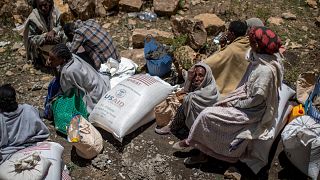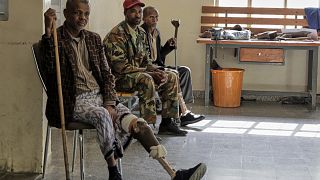Ethiopia
As the 72 hour surrender ultimatum came to an end, Ethiopia’s Tigrayans recount horrific journey they endured moving towards Sudan for refuge. Many suffered economic setbacks from years of investments and will now languish in p overty.
"We were in a very safe condition. We were developing, everyone trying to help family. Everyone works, everyone studies. Some of them work, was helping family. We never expected to be refugees, we never expected," one of the refugee said.
"There is thirst and there is a lack of food, and the elderly fall on the road, my mother fell ill on the road, she has diabetes and low blood pressure, after walking on foot she fell on the ground," another refugee said.
The refugees have to make it through long distances before reaching the border. With the huge numbers moving in many direction, some have never been traced accorfing to UNHCR.
"We have a challenge, it is mainl y relocating the refugees. The process, I mean the trip takes more than 15 hours from this reception centre to Um Raquba camp in Gedaref state. So it is a lot of work we do," Mamoun Abuarqub, UNHCR-Emergency Coordinator said.
Since fighting began on Nov. 4, hundreds have been killed, more than 41,000 refugees have fled to Sudan, and there has been widespread destruction and uprooting of people from homes.












01:00
Displacement crisis deepens: UN warns world at breaking point
Go to video
Kenya set to surpass Ethiopia as East Africa’s largest economy in 2025 – IMF
02:35
Sudanese Refugee Children Find Hope in Libyan School
Go to video
Ethiopians mark Easter with calls for peace and love amid ongoing conflict
01:53
Returning home to nothing: Displaced families in eastern DRC face dire humanitarian crisis
01:05
Sudan: fire in Darfur refugee camp destroys 50 houses, no casualties reported